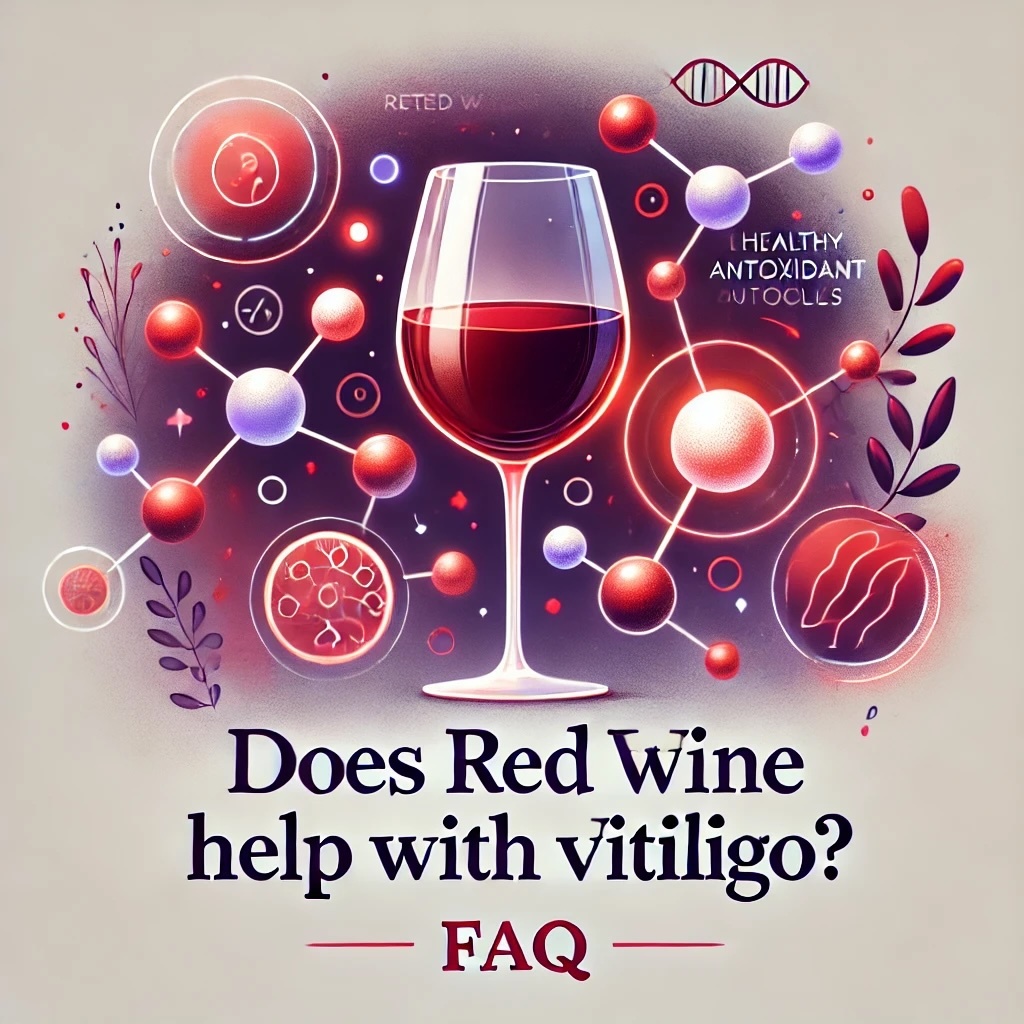Our work is entirely funded by private donations – we receive no money from government. Your money will help us continue funding research into vitiligo and supporting people affected by the condition.
FAQ
Red Wine and Vitiligo
Recent research has revealed intriguing findings about the potential protective effects of red wine against vitiligo, using a genetic approach to study health outcomes.
Red Wine and Vitiligo Risk
The study found that people with a genetic tendency toward moderate red wine consumption had a significantly lower risk of developing vitiligo:
- A 72% reduction in vitiligo risk was observed for higher predicted weekly red wine intake.
This suggests that moderate red wine consumption may offer protective benefits against vitiligo.
How Red Wine May Help
The potential benefits of red wine are thought to come from its rich antioxidant content. Antioxidants help reduce oxidative stress, which is a key factor in the development of vitiligo. By combating oxidative stress, red wine may help protect the cells that produce skin pigment.
Important Considerations
While the findings are promising, it’s important to keep a few things in mind:
- The connection between red wine and vitiligo is complex and influenced by other health factors.
- When accounting for conditions like diabetes, alcohol use, and depression, the link between red wine and vitiligo was less clear.
- Drinking too much alcohol can have negative effects on both physical and mental health.
A Balanced Approach to Red Wine
Moderation is key. Health guidelines suggest:
- One drink per day for women and two drinks per day for men.
- A standard drink of wine is about 5 ounces.
If you have vitiligo or are undergoing treatment, it’s a good idea to talk to your healthcare provider before making any changes to your diet or alcohol consumption.
Suggested reading
- Diet for Vitiligo: Eating for Skin Health
- Diet, Microbiome, and Vitiligo: Unveiling the Mystery
- Vitiligo's Unexpected Health Benefits

FAQOther Questions
- Isn't it just a cosmetic disorder?
Contrary to popular belief, vitiligo is not merely a cosmetic issue but a complex autoimmune disorder that affects the body’s largest organ—along with other vital systems—and is...
- Polypodium leucotomos as an adjunct treatment for vitiligo?
The tropical fern Polypodium leucotomos (also known as Polypodium aureum) and its relative Polypodium decumanumhave shown potential benefits for managing vitiligo and other auto...
- Which skin conditions can be mistaken for vitiligo?
Vitiligo is a common skin condition with characteristic milky white patches of irregular shape. However, several other skin conditions exhibit similar symptoms that can lead to ...
Though it is not always easy to treat vitiligo, there is much to be gained by clearly understanding the diagnosis, the future implications, treatment options and their outcomes.
Many people deal with vitiligo while remaining in the public eye, maintaining a positive outlook, and having a successful career.
Copyright (C) Bodolóczki JúliaBy taking a little time to fill in the anonymous questionnaire, you can help researchers better understand and fight vitiligo.